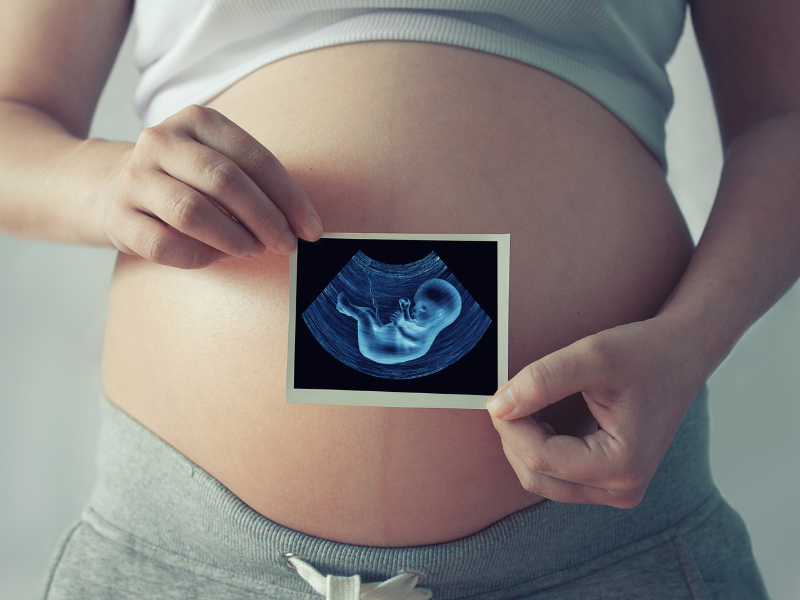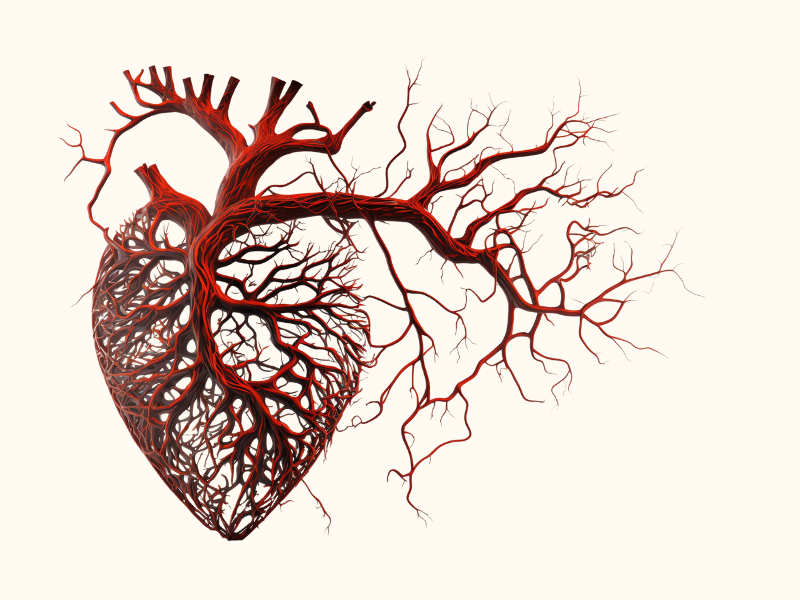08/02/2024
A pre-pregnancy health guide
Pregnancy, a joyous yet nerve-racking journey, demands careful attention to diet and supplementation to ensure both mother and fetus receive essential nutrients for healthy development.
Despite the importance of a balanced diet, deficiencies in key prenatal nutrients are surprisingly common.
This emphasises the need for full prenatal formulas to support a healthy pregnancy and the optimal fetal development.
Beyond vitamins and minerals, critical nutrients like DHA, choline, lutein, and zeaxanthin are vital for the baby's brain and eye health, reducing the risk of anomalies and disorders.
Deficiencies in pregnancy are common
It's common for women to believe a healthy diet suffices for pregnancy support, though key nutritional deficiencies are prevailing.
Research from Western Europe indicates a significant shortfall in essential prenatal nutrients among women of childbearing age before conception. In which, almost half lacked adequate folate, 67% were deficient in vitamin D, and a majority failed to get enough omega-3 acids from fish oil (1).
An observational study found that 26% of women had at least one nutrient deficiency, with several experiencing multiple shortfalls (2). This figure rose to 41% among women aged 19 to 50, reaching 47% among those pregnant or breastfeeding.
This suggests nearly half of all childbearing-aged women are not receiving the necessary nutrition for fostering optimal fetal growth and ensuring a healthy pregnancy.
The best supplements to take for pregnancy
Choline and more
During pregnancy, it's crucial to focus on nutrient intake, including choline, which supports brain development and cellular growth in fetuses (8,9). Choline, a vital but often overlooked nutrient(10), is essential for forming cell membranes and neurotransmission.
Although the body produces some choline, dietary intake from foods like beef, liver, eggs, and fish or supplementation is necessary to meet the increased demands of pregnancy and breastfeeding.
Pregnant women require at least 450 mg of choline daily, while breastfeeding women need 550 mg, highlighting the importance of incorporating choline-rich foods and possibly prenatal vitamins into their diet to support fetal brain function and development.
Starting choline supplementation before pregnancy or as soon as one finds out they are pregnant is advised due to its critical role in early fetal development, including brain and neural tube formation.
Life Extension's Prenatal Advantage, a science-based supplement, offers a blend of essential nutrients, including:
These are to support the health of both mother and baby during pregnancy and breastfeeding.
This emphasizes the significance of consulting healthcare providers to ensure dietary and prenatal vitamin choices meet all nutritional needs, underlining choline's importance not just for pregnant women but for individuals at all life stages to support cognitive function (9,10,11).
Why is it important to supplement for pregnancy?
The choices a woman makes during pregnancy can have a lasting impact on the long-term health of her child.
For embryo and fetus, many nutrients are required as the building blocks. These are fish oil-derived omega-3 fatty acid DHA and the essential nutrient choline and these are needed for brain development. These two nutrients are typically under-consumed in Western diets.
The nutrient, Folate, is essential for the healthy development of the brain and spinal cord. Inadequate folate can lead to permanent abnormalities in fetal growth.
It is widely known that smoking, drinking alcohol, abuse of drugs can permanently harm the health of a child. Likewise, inadequate nutrition in the diet takes a deleterious toll on the child’s health, raising the risk for chronic disease throughout life (3).
For this reason, it’s vital that women who are attempting to get pregnant or even think they may get pregnant pay special attention to their diet and the nutrients they’re taking.
Lack of adequate nutrients also puts the expectant mother at risk. Preeclampsia (a pregnancy complication characterized by high blood pressure), premature delivery, gestational diabetes, and stunted fetal growth have all been tied to deficiencies of various nutrients (4-7).
Women who breastfeed continue to be the sole source of nutrition for their babies for several months after delivery as well and should continue monitoring their nutritional intake.
Dealing with morning sickness
A recent University of California, Davis study revealed that probiotics significantly reduce morning sickness in pregnant women. Participants experienced a 16% decrease in nausea and a 33% reduction in vomiting after taking a blend of Lactobacillus and Bifidobacterium strains for 16 days (12).
This research highlights the gut's role in health during pregnancy and suggests probiotics as a beneficial supplement for improving gastrointestinal functions and overall quality of life for expectant mothers.
Morning sickness, affecting up to 85% of pregnant women, can be alleviated with remedies like ginger tea (13) and now, probiotics, known for promoting gut health and supporting various bodily functions (14).
Safe for pregnant women, probiotics, alongside prebiotics, may also prevent gestational diabetes and improve fasting glucose levels, offering a holistic approach to managing pregnancy discomforts and enhancing maternal and fetal health (14).
The question of infertility
To understand what causes male factor infertility, we have to understand the concept of sperm quality.
Four factors determine sperm quality:
- The total number of sperm cells produced (sperm count)
- Their physical attributes (morphology)
- Their ability to move properly once ejaculated (motility)
- The integrity of their DNA
Recent studies show a concerning decline in sperm quality among young men, with sperm concentrations dropping below the 40 million/mL needed for normal fertility. Factors such as sperm motility, semen volume, and the integrity of DNA in sperm cells have also worsened.
While medical treatments for male fertility issues exist, they often come with side effects, leading to a preference for treating women instead. However, research suggests that specific nutrients, particularly carnitine, can significantly improve sperm quality by enhancing motility and energy supply, thereby increasing the chances of successful pregnancy (15,16).
Antioxidants like vitamin C, E, CoQ10, selenium, n-acetylcysteine (NAC), and zinc have been proven to improve sperm quality by combating oxidative stress and boosting sperm count and motility (17-41). Nutritional supplementation, especially with these antioxidants, shows promise in reversing infertility issues without the need for medication.
This approach is especially relevant for older men, who are increasingly choosing fatherhood later in life and can benefit from the fertility-enhancing effects of a diet rich in antioxidant nutrients. Supplements like lycopene (42,43), omega-3 fatty acids (44-46), vitamin D (47-50), and ashwagandha (51) also contribute to improving sperm quality and overall reproductive health.
Read more blog posts
- Following fish oil's purity and sustainability
- Probiotics are not just for your gut health
- Crucial nutrients for strong bones and health
References
- Looman M, van den Berg C, Geelen A, et al. Supplement Use and Dietary Sources of Folate, Vitamin D, and n-3 Fatty Acids during Preconception: The GLIMP2 Study. 2018 Jul 25;10(8).
- Bird JK, Murphy RA, Ciappio ED, et al. Risk of Deficiency in Multiple Concurrent Micronutrients in Children and Adults in the United States. Nutrients. 2017 Jun 24;9(7).
- Gluckman PD, Hanson MA, Cooper C, et al. Effect of in utero and early-life conditions on adult health and disease. N Engl J Med. 2008 Jul 3;359(1):61-73.
- Agarwal A, Aponte-Mellado A, Premkumar BJ, et al. The effects of oxidative stress on female reproduction: a review. Reprod Biol Endocrinol. 2012 Jun 29;10:49.
- Al-Gubory KH, Fowler PA, Garrel C. The roles of cellular reactive oxygen species, oxidative stress and antioxidants in pregnancy outcomes. Int J Biochem Cell Biol. 2010 Oct;42(10):1634-50.
- Berti C, Cetin I, Agostoni C, et al. Pregnancy and Infants’ Outcome: Nutritional and Metabolic Implications. Crit Rev Food Sci Nutr. 2016;56(1):82-91.
- Richard K, Holland O, Landers K, et al. Review: Effects of maternal micronutrient supplementation on placental function. Placenta. 2017 Jun;54:38-44.
- Lauritzen L, Brambilla P, Mazzocchi A, et al. DHA Effects in Brain Development and Function. Nutrients. 2016 Jan 4;8(1).
- Trujillo-Gonzalez I, Friday WB, Munson CA, et al. Low availability of choline in utero disrupts development and function of the retina. FASEB J. 2019 Aug;33(8):9194-209.
- Mun JG, Legette LL, Ikonte CJ, et al. Choline and DHA in Maternal and Infant Nutrition: Synergistic Implications in Brain and Eye Health. Nutrients. 2019 May 21;11(5).
- Mudd AT, Getty CM, Sutton BP, et al. Perinatal choline deficiency delays brain development and alters metabolite concentrations in the young pig. Nutr Neurosci. 2016 Dec;19(10):425-33.
- Chen, Yutao et al. "Effect of Lactobacillus rhamnosus Probiotic in Early Pregnancy on Plasma Conjugated Bile Acids in a Randomised Controlled Trial." Nutrients, January 2021, https://pubmed.ncbi.nlm.nih.gov/33450885/
- Sharifzadeh, Fatemeh et al. "A comparison between the effects of ginger, pyridoxine (vitamin B6) and placebo for the treatment of the first trimester nausea and vomiting of pregnancy (NVP)." J Matern Fetal Neonatal Med., October 2018, https://pubmed.ncbi.nlm.nih.gov/28629250/
- Jarde, Alexander et al. "Pregnancy outcomes in women taking probiotics or prebiotics: a systematic review and meta-analysis." BMC Pregnancy Childbirth, January 2018, https://pubmed.ncbi.nlm.nih.gov/29310610/
- Available at: http://www.nlm.nih.gov/medlineplus/ency/article/003627.htm. Accessed September 21, 2012.
- Andersson AM, Jorgensen N, Main KM, et al. Adverse trends in male reproductive health: we may have reached a crucial 'tipping point'. Int J Androl. 2008 Apr;31(2):74-80.
- Thiele JJ, Friesleben HJ, Fuchs J, Ochsendorf FR. Ascorbic acid and urate in human seminal plasma: determination and interrelationships with chemiluminescence in washed semen. Hum Reprod. 1995 Jan;10(1):110-5.
- Colagar AH, Marzony ET. Ascorbic Acid in human seminal plasma: determination and its relationship to sperm quality. J Clin Biochem Nutr. 2009 Sep;45(2):144-9.
- Dawson EB, Harris WA, Teter MC, Powell LC. Effect of ascorbic acid supplementation on the sperm quality of smokers. Fertil Steril. 1992 Nov;58(5):1034-9.
- Vani K, Kurakula M, Syed R, Alharbi K. Clinical Relevance of Vitamin C Among Lead-Exposed Infertile Men. Genet Test Mol Biomarkers. 2012 Jun 25.
- Greco E, Romano S, Iacobelli M, et al. ICSI in cases of sperm DNA damage: beneficial effect of oral antioxidant treatment. Hum Reprod. 2005 Sep;20(9):2590-4.
- Kessopoulou E, Powers HJ, Sharma KK, et al. A double-blind randomized placebo cross-over controlled trial using the antioxidant vitamin E to treat reactive oxygen species associated male infertility. Fertil Steril. 1995 Oct;64(4):825-31.
- Greco E, Iacobelli M, Rienzi L, Ubaldi F, Ferrero S, Tesarik J. Reduction of the incidence of sperm DNA fragmentation by oral antioxidant treatment. J Androl. 2005 May-Jun;26(3):349-53.
- Suleiman SA, Ali ME, Zaki ZM, el-Malik EM, Nasr MA. Lipid peroxidation and human sperm motility: protective role of vitamin E. J Androl. 1996 Sep-Oct;17(5):530-7.
- Lewin A, Lavon H. The effect of coenzyme Q10 on sperm motility and function. Mol Aspects Med. 1997;18 Suppl:S213-9.
- Balercia G, Mancini A, Paggi F, et al. Coenzyme Q10 and male infertility. J Endocrinol Invest. 2009 Jul;32(7):626-32.
- Balercia G, Mosca F, Mantero F, et al. Coenzyme Q(10) supplementation in infertile men with idiopathic asthenozoospermia: an open, uncontrolled pilot study. Fertil Steril. 2004 Jan;81(1):93-8.
- Balercia G, Buldreghini E, Vignini A, et al. Coenzyme Q10 treatment in infertile men with idiopathic asthenozoospermia: a placebo-controlled, double-blind randomized trial. Fertil Steril. 2009 May;91(5):1785-92.
- Mancini A, De Marinis L, Littarru GP, Balercia G. An update of Coenzyme Q10 implications in male infertility: biochemical and therapeutic aspects. Biofactors. 2005;25(1-4):165-74.
- Ibrahim HA, Zhu Y, Wu C, et al. Selenium-enriched probiotics improves murine male fertility compromised by high fat diet. Biol Trace Elem Res. 2012 Jun;147(1-3):251-60.
- Moslemi MK, Tavanbakhsh S. Selenium-vitamin E supplementation in infertile men: effects on semen parameters and pregnancy rate. Int J Gen Med. 2011;4:99-104.
- Keskes-Ammar L, Feki-Chakroun N, Rebai T, et al. Sperm oxidative stress and the effect of an oral vitamin E and selenium supplement on semen quality in infertile men. Arch Androl. 2003 Mar-Apr;49(2):83-94.
- Scott R, MacPherson A, Yates RW, Hussain B, Dixon J. The effect of oral selenium supplementation on human sperm motility. Br J Urol. 1998 Jul;82(1):76-80.
- Safarinejad MR, Safarinejad S. Efficacy of selenium and/or N-acetyl-cysteine for improving semen parameters in infertile men: a double-blind, placebo controlled, randomized study. J Urol. 2009 Feb;181(2):741-51.
- Oda SS, El-Maddawy ZK. Protective effect of vitamin E and selenium combination on deltamethrin-induced reproductive toxicity in male rats. Exp Toxicol Pathol. 2011 Apr 6.
- Kumari D, Nair N, Bedwal RS. Testicular apoptosis after dietary zinc deficiency: ultrastructural and TUNEL studies. Syst Biol Reprod Med. 2011 Oct;57(5):233-43.
- Akinloye O, Abbiyesuku FM, Oguntibeju OO, Arowojolu AO, Truter EJ. The impact of blood and seminal plasma zinc and copper concentrations on spermogram and hormonal changes in infertile Nigerian men. Reprod Biol. 2011 Jul;11(2):83-98.
- Yuyan L, Junqing W, Wei Y, Weijin Z, Ersheng G. Are serum zinc and copper levels related to semen quality? Fertil Steril. 2008 Apr;89(4):1008-11.
- Ebisch IM, Pierik FH, FH DEJ, Thomas CM, Steegers-Theunissen RP. Does folic acid and zinc sulphate intervention affect endocrine parameters and sperm characteristics in men? Int J Androl. 2006 Apr;29(2):339-45.
- Wong WY, Merkus HM, Thomas CM, Menkveld R, Zielhuis GA, Steegers-Theunissen RP. Effects of folic acid and zinc sulfate on male factor subfertility: a double-blind, randomized, placebo-controlled trial. Fertil Steril. 2002 Mar;77(3):491-8.
- Omu AE, Dashti H, Al-Othman S. Treatment of asthenozoospermia with zinc sulphate: andrological, immunological and obstetric outcome. Eur J Obstet Gynecol Reprod Biol. 1998 Aug;79(2):179-84.
- Gupta NP, Kumar R. Lycopene therapy in idiopathic male infertility--a preliminary report. Int Urol Nephrol. 2002;34(3):369-72.
- Oborna I, Malickova K, Fingerova H, et al. A randomized controlled trial of lycopene treatment on soluble receptor for advanced glycation end products in seminal and blood plasma of normospermic men. Am J Reprod Immunol. 2011 Sep;66(3):179-84.
- Roqueta-Rivera M, Stroud CK, Haschek WM, et al. Docosahexaenoic acid supplementation fully restores fertility and spermatogenesis in male delta-6 desaturase-null mice. J Lipid Res. 2010 Feb;51(2):360-7.
- Vujkovic M, de Vries JH, Lindemans J, et al. The preconception Mediterranean dietary pattern in couples undergoing in vitro fertilization/intracytoplasmic sperm injection treatment increases the chance of pregnancy. Fertil Steril. 2010 Nov;94(6):2096-101.
- Safarinejad MR. Effect of omega-3 polyunsaturated fatty acid supplementation on semen profile and enzymatic anti-oxidant capacity of seminal plasma in infertile men with idiopathic oligoasthenoteratospermia: a double-blind, placebo-controlled, randomised study. Andrologia. 2011 Feb;43(1):38-47.
- Blomberg Jensen M, Dissing S. Non-genomic effects of vitamin D in human spermatozoa. Steroids. 2012 Aug;77(10):903-9.
- Holick MF. Vitamin D: a D-Lightful health perspective. Nutr Rev. 2008 Oct;66(10 Suppl 2):S182-94.
- Wimalawansa SJ. Vitamin D: an essential component for skeletal health. Ann N Y Acad Sci. 2011 Dec;1240:E1-12.
- Wimalawansa SJ. Vitamin D in the new millennium. Curr Osteoporos Rep. 2012 Mar;10(1):4-15.
- Mahdi AA, Shukla KK, Ahmad MK, et al. Withania somnifera Improves Semen Quality in Stress-Related Male Fertility. Evid Based Complement Alternat Med. 2009 Sep 29.






